If you’re wondering whether to embark on a high seas voyage.. Here’s 20 reasons why we think that ya should. 2 weeks and we’re back to the Marshall Islands and back to Confederate! Yeowwww.
1) Your house has a giant swimming pool around it called the ocean.
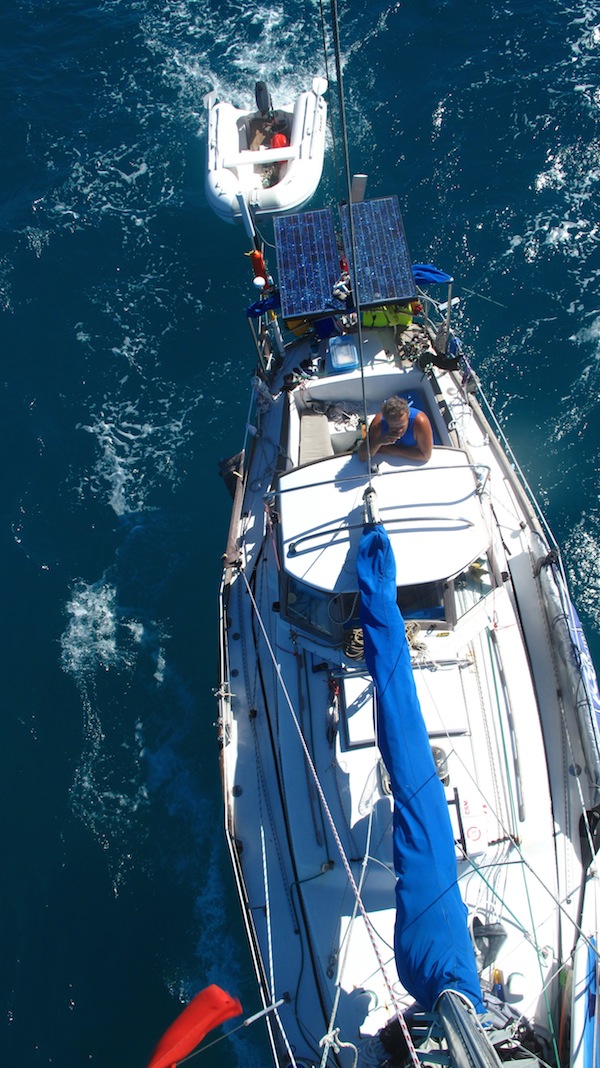
2) You’re too far away from shops to spend money buying pointless crap, so you enjoy the things that are free.
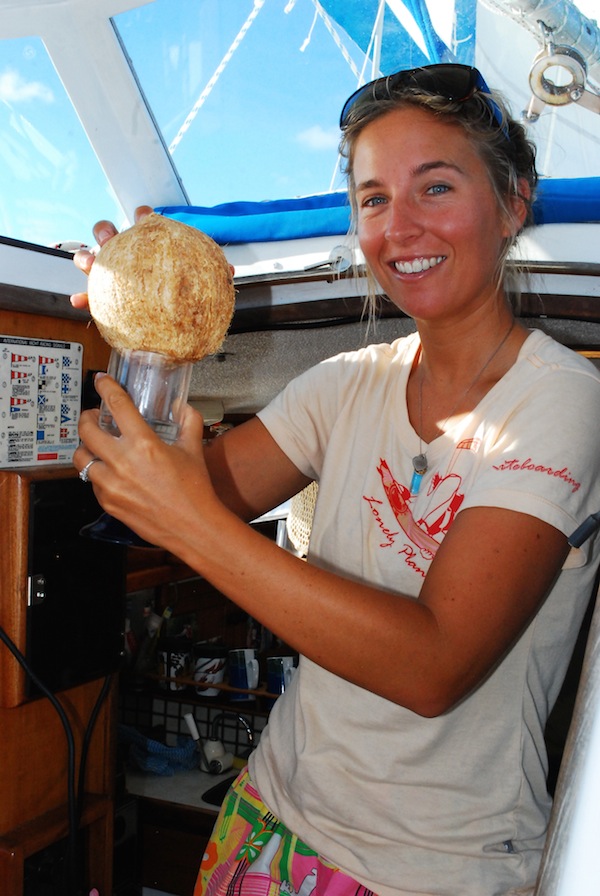
3) You get by on around $400US/per person/month in the Pacific, or at least that’s been our budget for the last year and its worked. Wind, waves, coral gazing, star gazing, beach, sun, sea – all free. The best things in life – free.
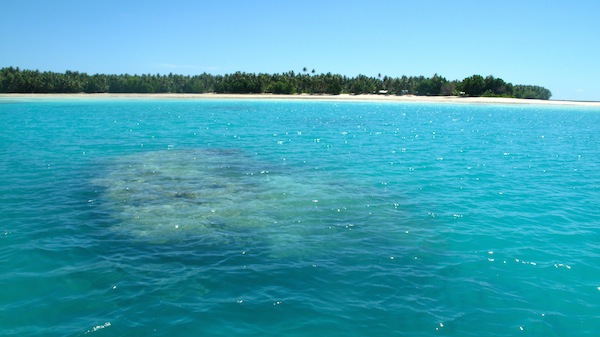
Tuvalu
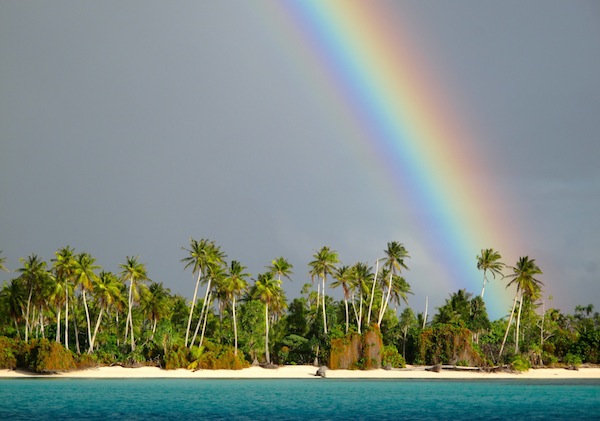
Marshall Islands
4) An initial cost of $40,000NZ for the boat puts house prices in Auckland and most cities to shame. Besides marinas mean you can live in a city too if you want.
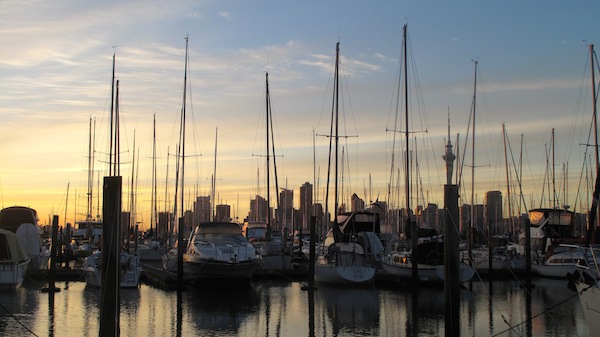
Confederate at Westhaven before we left
5) Your house moves – I’ll never forget the first morning I woke up after our first passage and realised our house was in Tonga. Or the morning we went through this reef passage into Tuvalu.
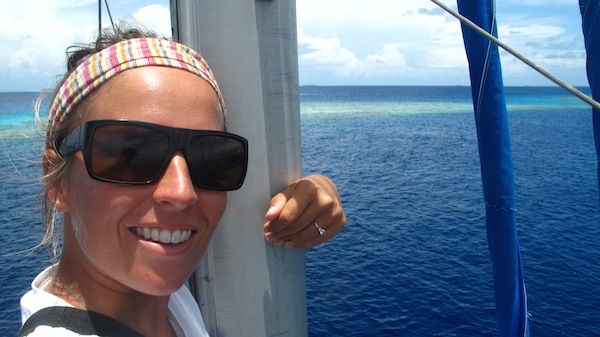
6) You are more sustainable; your footprint is small. If you want to move, you use the wind and a minimal amount of fuel. If you catch fish you are sourcing your food from directly underneath you – not miles away.
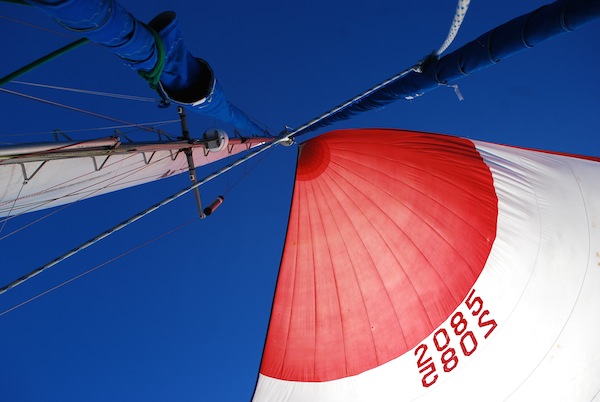
7) Catching fish is also rad.

Spanish mackeral from Fiji
8) Fish tastes good and is good for you.
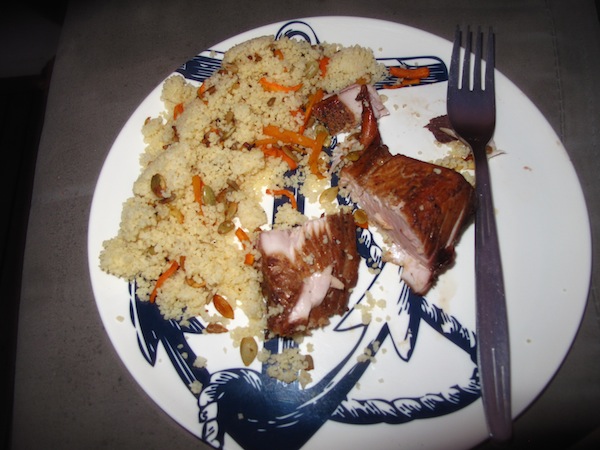
9) Eventually you’ll get sick of fish but you can trade it for vegies if you meet the right people.
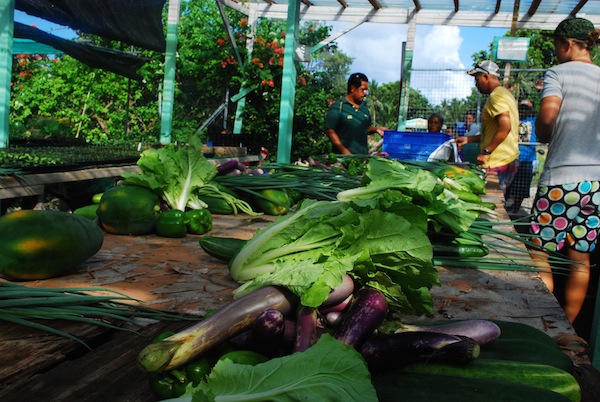
Vegie market Tuvalu
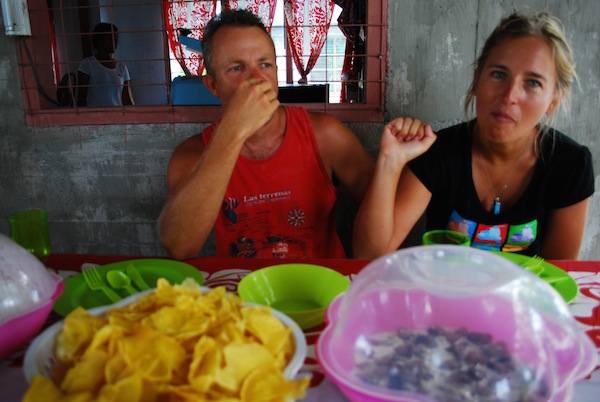
Homemade breadfruit chips by host family in Nanumea, Tuvalu
10) You have time to meet the right people.
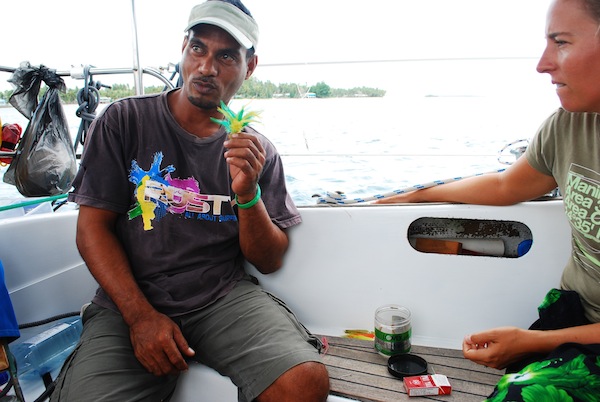
11) Having a smaller footprint feels good, you feel in tune the world around you – not disconnected from it.
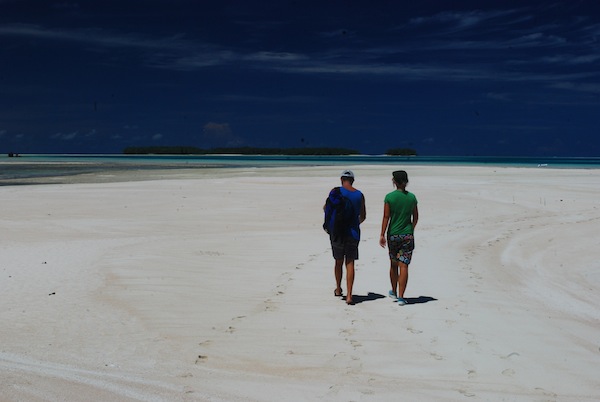
Southern anchorage Funafuti Lagoon, Tuvalu
12) If you need to fix something you do it yourself.

13) If you can’t fix it yourself you have a support network of other boats who have time to help you. You can pay them with baked goods.
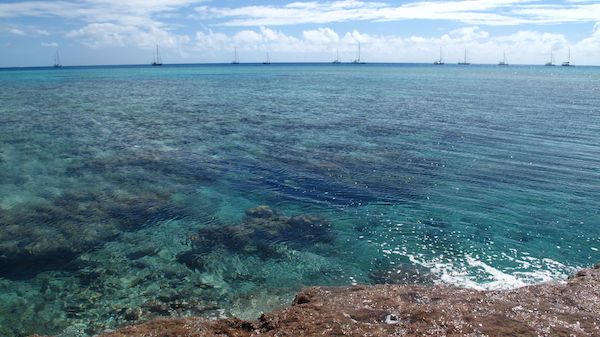
Boats anchored in Minerva reef on the way to Tonga
14) You have time to cook, read, kitesurf, play guitar and follow your passions. Time for all those things you’ve wanted to do for ages.
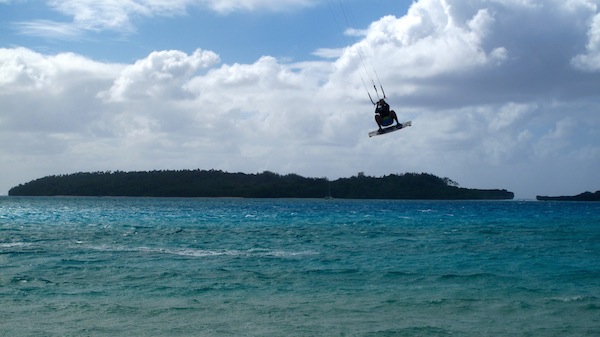
Kiting Tonga
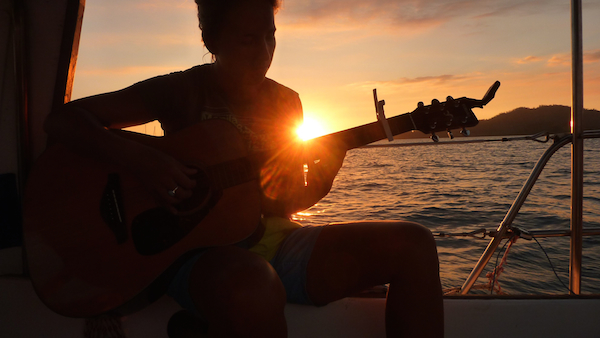
Sunset at Musket Cove, Fiji

Robins cinnamon scrolls
15) You can see dolphins, sharks, turtles, manta rays, fish, coral regularly. You dream about coral reefs. You feel in awe of the world every day.
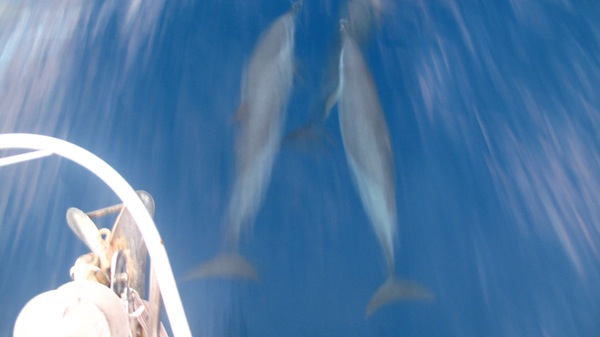
Dolphins as we left Fiji
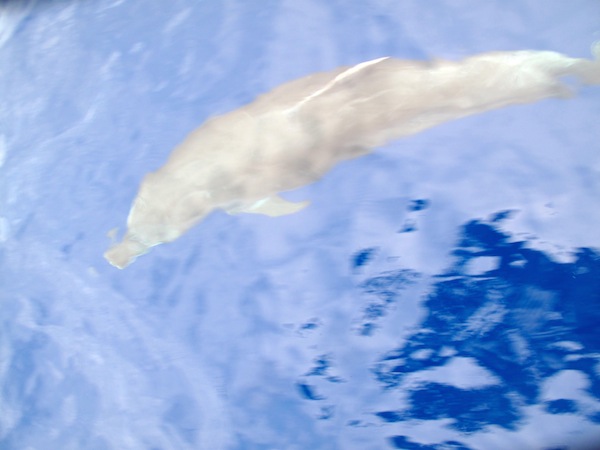
Dolphins greeting us in Nanumea, Tuvalu
16) You feel healthy and your stress levels are low. Until you head into 40 knots of wind n rain, and and your stress is high, but it is physical stress, not mental.
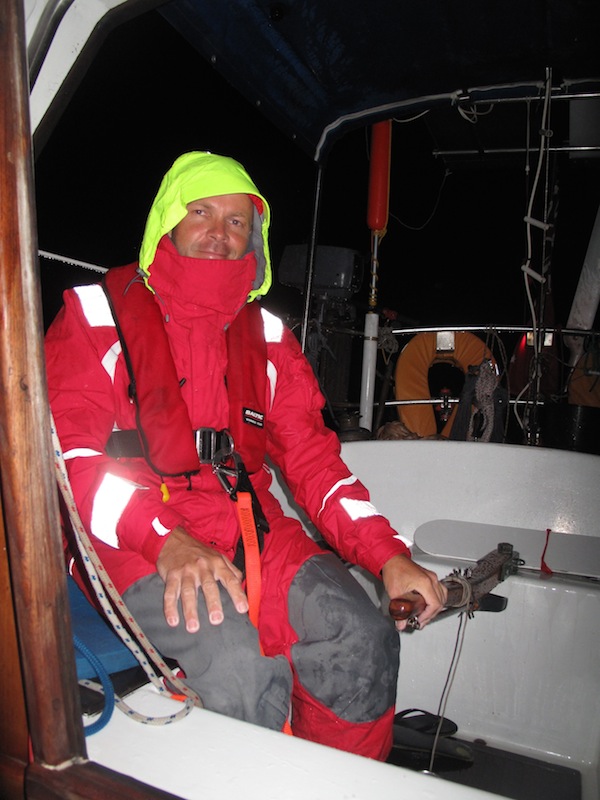
Robin facing a hard night on passage to the Marshalls
17) Physical stress is fast recovering, quickly forgotten and at the end of it you get an incredible sleep. Mental stress is sleep depriving and wears you down.
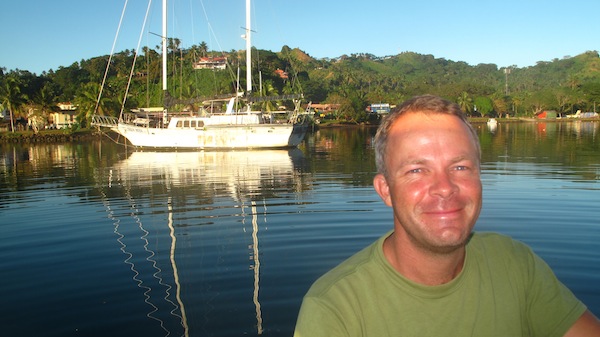
The day after we arrived in Fiji, well rested after a fairly hard 4 day passage
18) You bend, jump, duck, twist, lie, stand, walk, swim, row, climb in, climb out, pull, push and sit, as opposed to sit, sit, sit, sit, gym, run, sit, lie.
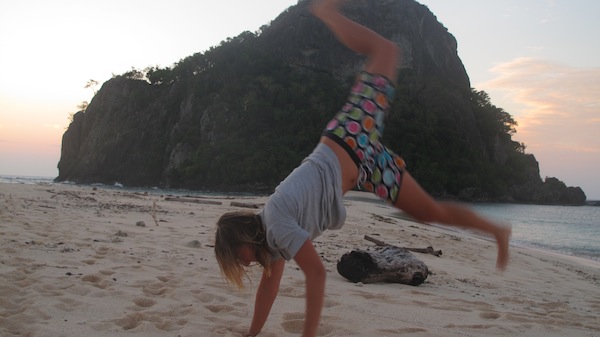
Handstands on our favourite island in Fiji

Ok so this wasn’t us but kids in Tuvalu, but we could all learn a thing or two
19) You start to really love the ocean even more than you ever thought possible, and feel a connection to the ocean.

Our first reef pass in Tonga Ha’apai group – one to be respected
20) “I think first and foremost, people only protect the things they love. And you can’t love something unless you inherently identify with it.” – Kris Thomkins, Patagonia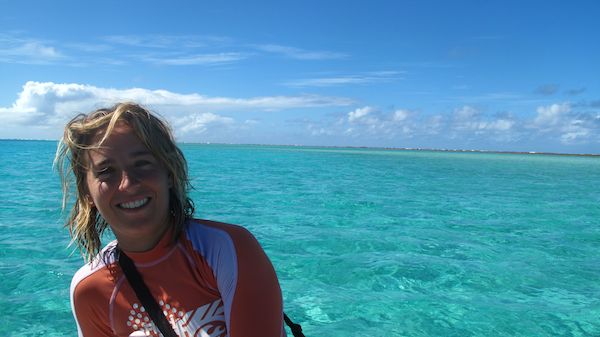

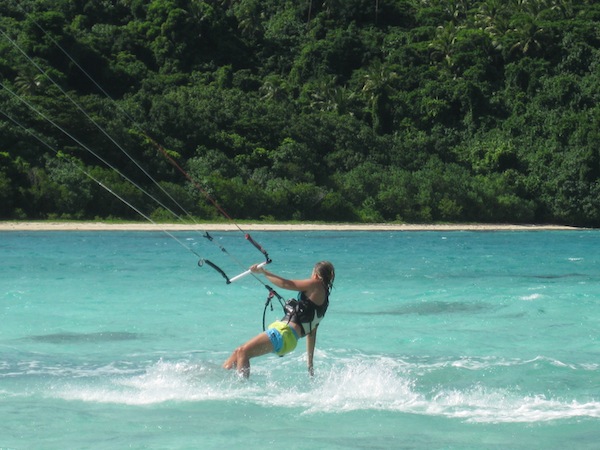
Ye ha can’t wait to get back into it. For our itinerary for the next leg… http://windsquirrel.com/the-revised-route-sailing-2014/
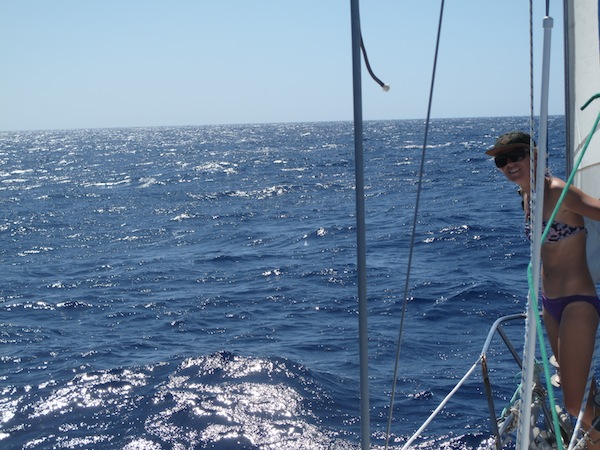
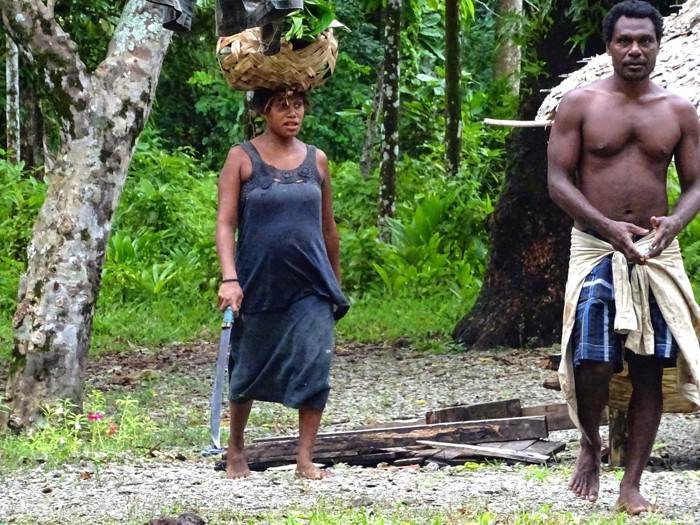





























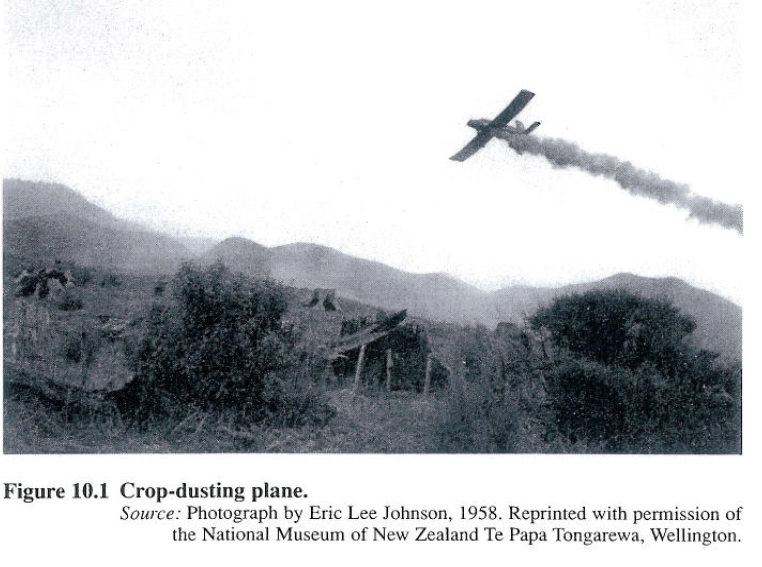
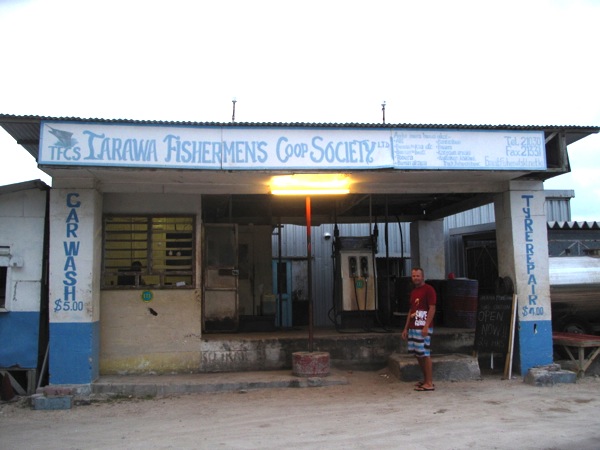
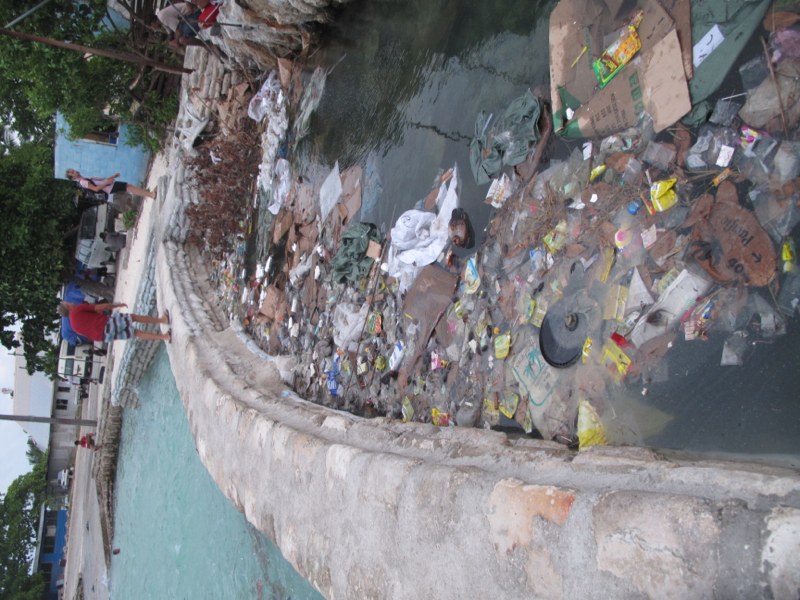
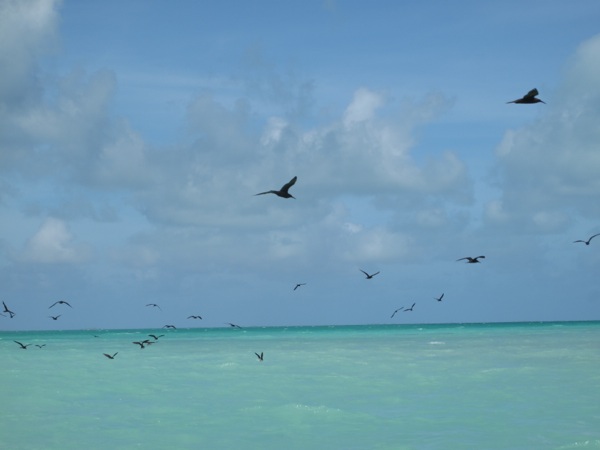
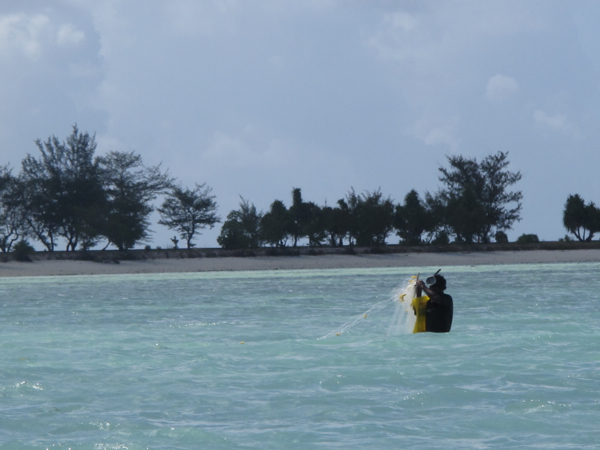
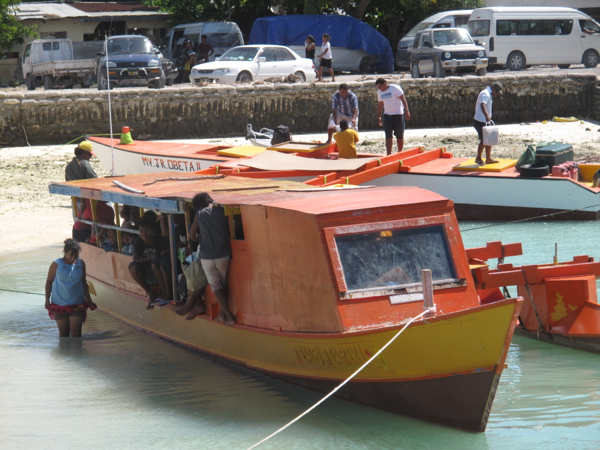
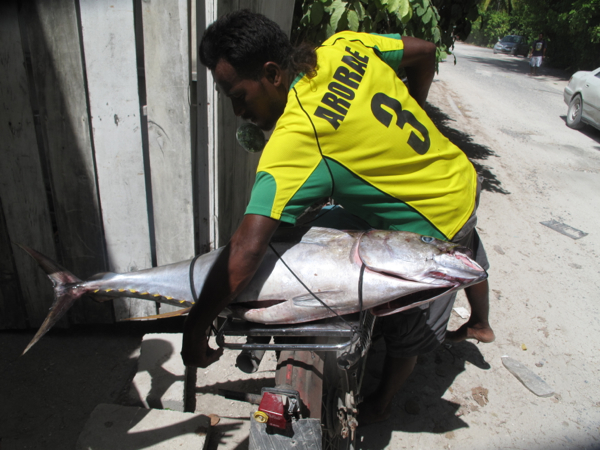
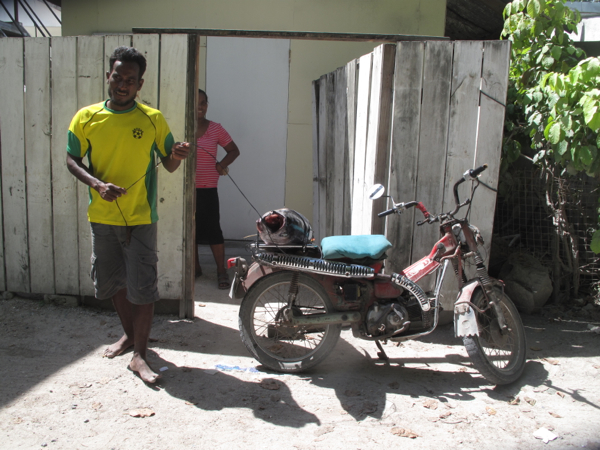
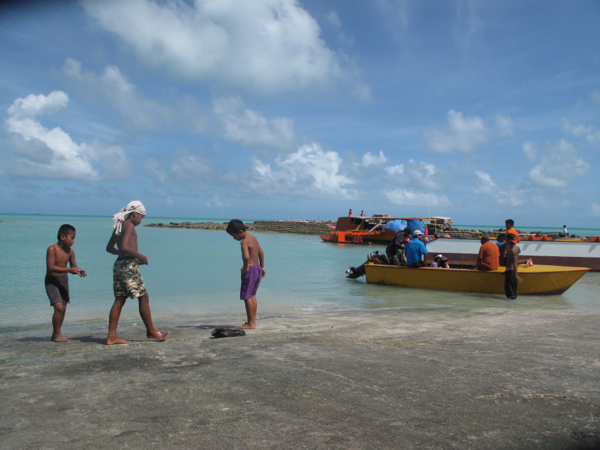
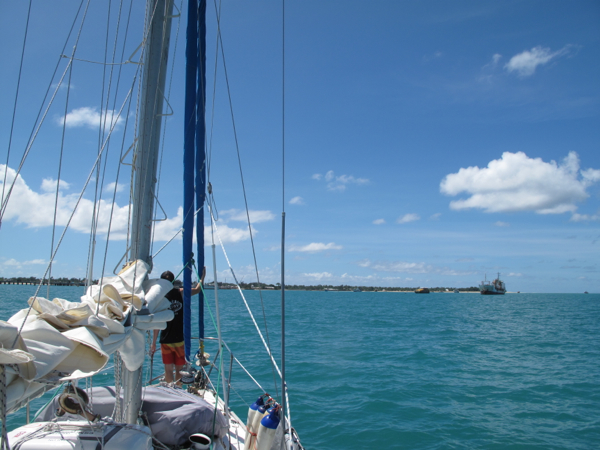
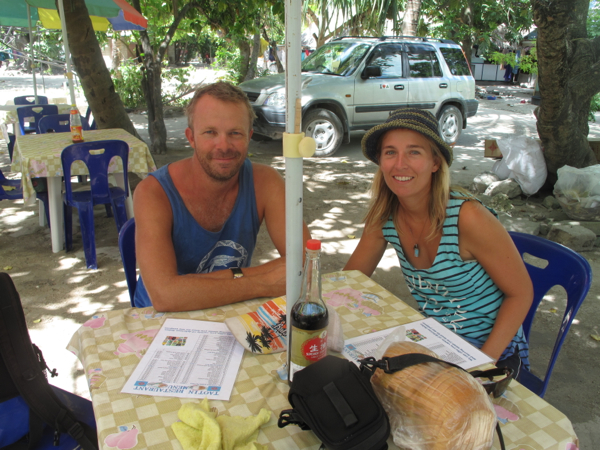
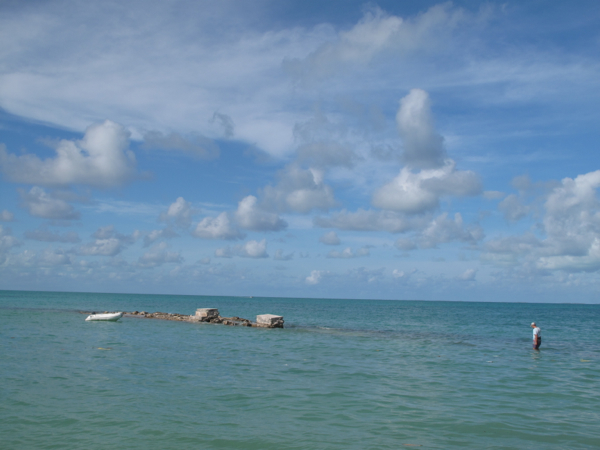
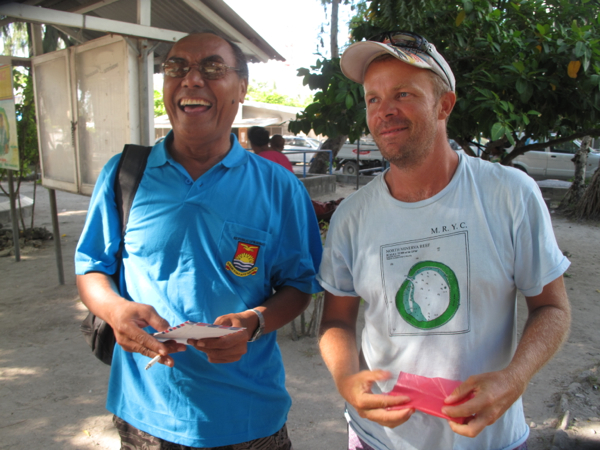
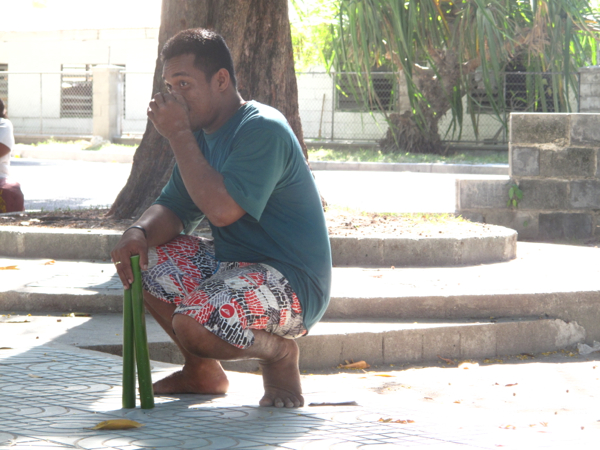
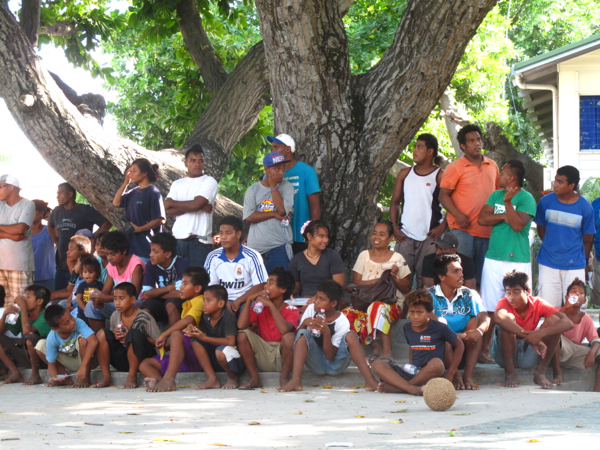
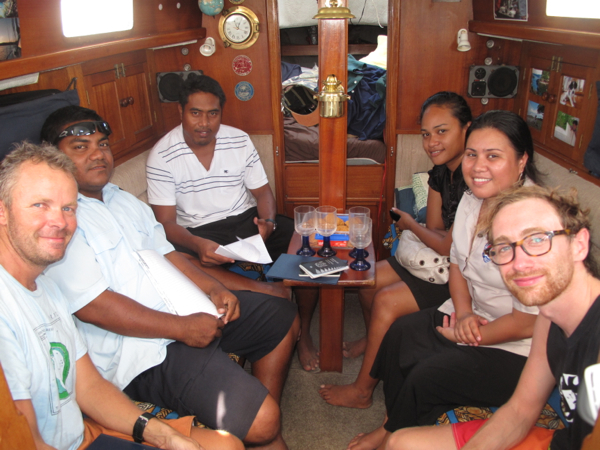
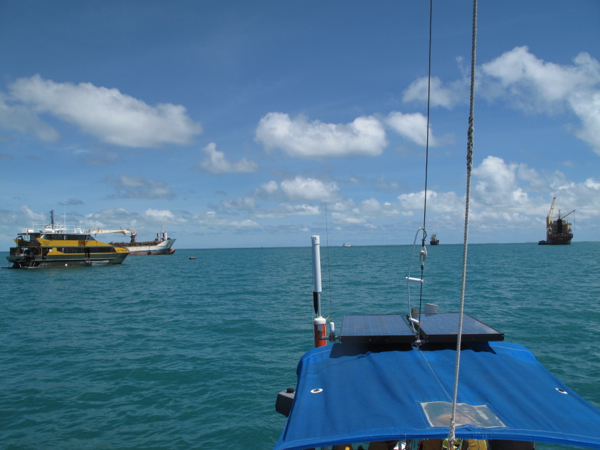
Recent Comments